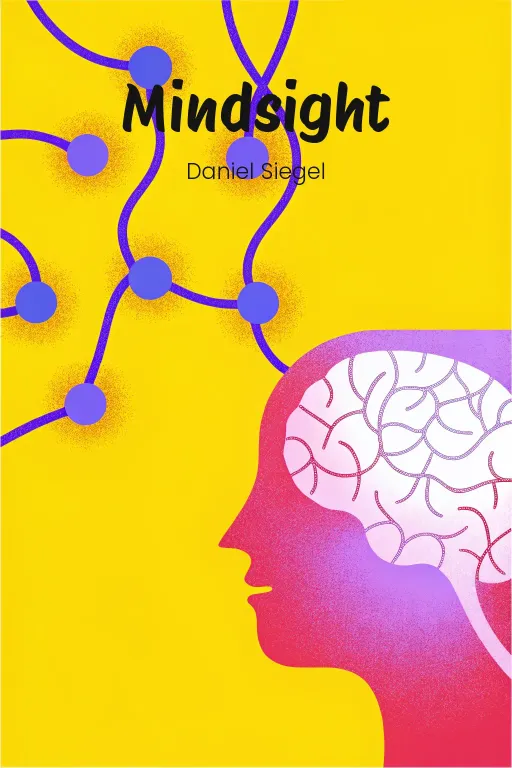
Hold Me Tight
Sex & Relationships
Sue Johnson
Hold Me Tight: Creating a Secure Emotional Connection - A Comprehensive Editorial Summary
Dr. Sue Johnson's "Hold Me Tight: Creating a Secure Emotional Connection" stands as a paradigmatic shift in understanding love and relationships, deftly interweaving Emotionally Focused Therapy (EFT) and attachment theory to illuminate the foundational significance of emotional connection, mutual vulnerability, and secure attachments for the cultivation of healthy, enduring romantic partnerships. This seminal work navigates beyond superficial observations, offering a profound exploration of the inherent human need for emotional bonding and providing a structured pathway for couples to address relational wounds and foster deeper intimacy.
Introduction: The Genesis of a Therapeutic Revolution
Dr. Johnson's personal encounters with the complexities of love, particularly her observations of her parents' fractured marriage, served as a profound catalyst for her professional trajectory. Witnessing the raw, palpable grief her father experienced even after decades of separation instilled in her a deep appreciation for the enduring potency of emotional bonds. This initial, visceral understanding evolved into a rigorous academic pursuit, propelling her into the realms of counseling and psychology, where she sought to demystify the intricacies of human attachment.
Early experiences teaching disturbed children and counseling adults grappling with heartache underscored the profound impact of love, or its absence, on mental well-being. Observing the limitations of prevailing therapeutic approaches, which often overlooked the fundamental emotional currents underpinning adult interactions, Johnson embarked on a path of innovation, giving rise to Emotionally Focused Therapy (EFT). This groundbreaking framework offers a structured pathway for resolving couple struggles by emphasizing emotional responsiveness and attachment needs, illuminating the complex maze of love and guiding couples toward reconnection.
Part One: A New Light on Love
Love—A Revolutionary New View: An Evolutionary Imperative
Love, often romanticized and ceaselessly debated, defies simplistic definitions yet remains central to the human experience. Dr. Johnson posits that love transects mere attraction, serving as an evolutionary imperative—a mechanism that not only facilitates reproduction but, more crucially, fosters emotional bonds essential for survival. Bolstering this perspective is a wealth of scientific research underscoring the paramount importance of secure emotional attachments. Love equips us to navigate life's adversities, weaving a sanctuary of emotional connection vital for physical and mental well-being.
A New Theory of Attachment: The Primacy of Connection
John Bowlby's pioneering attachment theory offers a profound framework for understanding the human proclivity for connection. Bowlby recognized the innate drive for emotional bonds, positing that humans thrive through relationships providing comfort and security. His observations on the detrimental effects of emotional deprivation, particularly in children, resonate deeply within contemporary psychological research, emphasizing that the need for safe attachments does not diminish with age but rather evolves into adult love.
Dr. Johnson extends Bowlby's insights to adult relationships, revealing that the passionate quarrels and emotional distance exhibited by couples often stem from this primal instinct for connection. The fear of losing this bond triggers visceral reactions that may manifest as anger or withdrawal, mirroring ancient battles for survival and connection. Individuals are perpetually engaged in silent negotiations, evaluating each other's availability and responsiveness.
Through her extensive research, Johnson illustrates how adults replicate childhood attachment dynamics, which can lead to tumultuous relationships marked by intermittent connection and disconnection. This revelation has far-reaching implications for couple therapy; understanding the emotional rhythms of attachment can enable partners to navigate their struggles and fortify their bonds—an endeavor facilitated by the principles of EFT.
Part Two: Seven Transforming Conversations
Conversation 1: Recognizing the Demon Dialogues—Unmasking the Patterns of Disconnection
In the heat of conflict, it is easy for partners to lose sight of the underlying emotions driving their disputes. Dr. Johnson introduces the concept of "Demon Dialogues"—patterns of interaction characterized by blame, defensiveness, and withdrawal—which obscure the emotional hunger lurking beneath. Central to these interactions is the question, "Do I matter to you? Can I rely on you?"
Dr. Johnson reframes conflicts as "protests"—animated cries for reassurance that manifest as criticism or withdrawal. By understanding conflicts in these terms, couples can begin to unearth the underlying fears propelling their behavior and begin addressing the root of their emotional disconnection. As couples learn to recognize these patterns, they can dismantle their defenses and engage in more profound conversations, revealing their vulnerabilities and paving the way for open-hearted communication.
Conversation 2: Finding the Raw Spots—Navigating Emotional Vulnerabilities
With heightened awareness of their respective emotional vulnerabilities, couples navigate the critical task of confronting their "raw spots"—sensitive triggers that evoke powerful responses. This stage demands gentle exploration, requiring both individuals to navigate the delicate terrain of their emotional landscapes. By framing conversations around vulnerability rather than blame, couples discover strength in expressing what frightens and challenges them—a foundation for lasting emotional bonds.
Through honesty and a willingness to share deeply rooted fears and needs, partners develop empathy. Recognizing each other's raw spots becomes less about assigning blame and more about fostering understanding, thereby strengthening the emotional connection.
Conversation 3: Revisiting a Rocky Moment—Learning from Past Conflicts
Recalling and revisiting moments of tension can yield profound insights. This reflection allows couples to dissect particular arguments, examining not just the specific words exchanged but unearthing the emotions driving those utterances.
The goal in this stage is not to assign blame but to glean context from the emotional turmoil experienced during these contentious periods. By articulating feelings during a specific conflict, partners can understand how their responses perpetuated the cycle of disconnection. Acknowledging that initial fears around rejection or disappointment shaped their reactions provides them with the tools to evolve and strengthen their bond. By offering each other a safe space to explore these moments, couples can transcend previous patterns of interaction and recognize their emotional responses as reactions to mutual attachment needs, fostering greater emotional intimacy.
Conversation 4: Hold Me Tight—Expressing Emotional Needs
The transformative moment arrives when couples commit to the "Hold Me Tight" conversation, consolidating emotional insights into actionable experiences. This pivotal dialogue enables partners to openly express their emotional dependence without shame or judgment—a moment akin to the joyous and unguarded connection often found in parent-child relationships.
In this exchange, partners articulate their needs, inviting reciprocal vulnerability. This mutual recognition encourages partners to take emotional risks; as they open themselves to vulnerability, they forge a bond enabling them to navigate life's trials together. In this environment of emotional safety, deep-rooted fears transform into moments of reassurance and understanding. By committing to communicate their needs directly and honestly, couples can revitalize their commitment, fostering a renewed sense of security that flourishes in the aftermath of conflict.
A Critical Assessment of "Hold Me Tight"
Strengths:
- Clarity and Accessibility: Dr. Johnson's writing is remarkably clear and accessible, translating complex psychological theories into practical, understandable language for a broad audience.
- Evidence-Based Approach: The book is firmly grounded in Emotionally Focused Therapy (EFT) and attachment theory, both of which have been rigorously researched and validated.
- Practical Guidance: "Hold Me Tight" provides actionable steps and exercises that couples can implement immediately to improve their relationships.
- Real-Life Examples: The inclusion of detailed case studies enhances the book's relatability and demonstrates the application of EFT principles in real-world scenarios.
- Empathetic Tone: Dr. Johnson's empathetic and non-judgmental approach fosters trust and encourages readers to engage with potentially vulnerable material.
Weaknesses:
- Simplification of Complex Issues: While the book's accessibility is a strength, it may oversimplify some complex psychological and relational dynamics.
- Limited Cultural Diversity: The case studies primarily focus on Western, heterosexual couples, which may limit the book's relevance for diverse cultural backgrounds or relationship orientations.
- Potential for Misinterpretation: Without professional guidance, some couples may misinterpret the exercises or apply them inappropriately, potentially exacerbating existing issues.
Broader Impact and Significance
"Hold Me Tight" has had a tremendous impact on the field of couple therapy, popularizing Emotionally Focused Therapy (EFT) and making it accessible to a wide audience. The book's emphasis on emotional connection and vulnerability has shifted the paradigm of relationship advice, moving away from purely behavioral or cognitive approaches toward a deeper understanding of attachment needs. "Hold Me Tight" offers a message of hope, empowering couples to take control of their relationships and cultivate lasting intimacy and emotional security.
Conclusion
In her exploration of love through the lens of Emotionally Focused Therapy, Dr. Sue Johnson delves into the intricate dance of emotional connection—an endeavor that sheds light on how we can foster resilient relationships. By intertwining personal narratives with scientific understanding, she elevates the discourse around love, urging couples to embrace their emotional landscapes with courage.
Ultimately, Dr. Johnson's work encourages us to confront our vulnerabilities, fostering a space where compassion and understanding flourish. As she poignantly states, love is the very foundation of our survival—an innate necessity heralded by the wisdom of evolution. By embracing this journey and committing to the path of emotional responsiveness, we open the door to a lifetime of love that not only transforms our relationships but nurtures the very essence of who we are as humans.
In a world increasingly characterized by disconnection, Dr. Johnson offers a hopeful message: that through understanding, empathy, and heartfelt commitment, we can rekindle the flame of love, giving us the strength to navigate the complexities of intimacy with grace and resilience. This book acts as a guiding light, illuminating the path towards deeper emotional intimacy and relational fulfillment.









